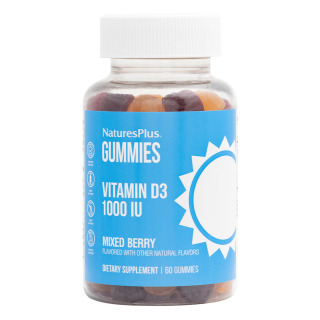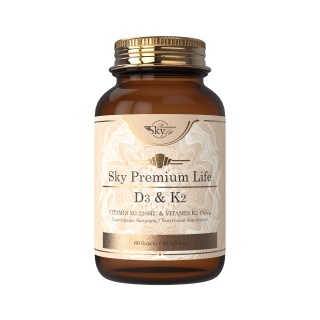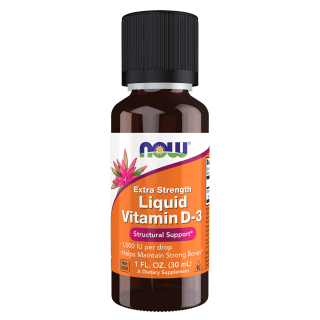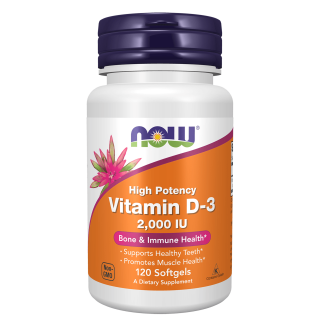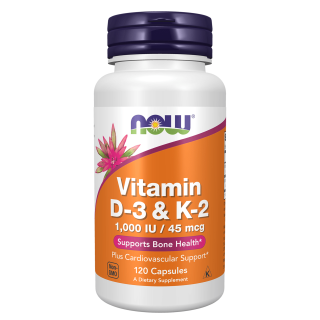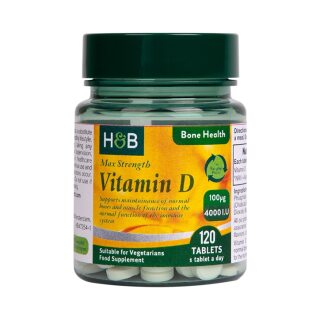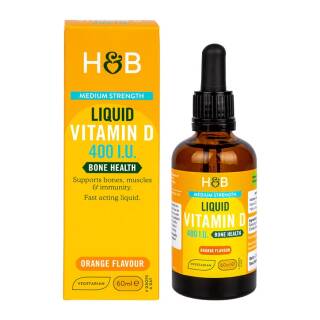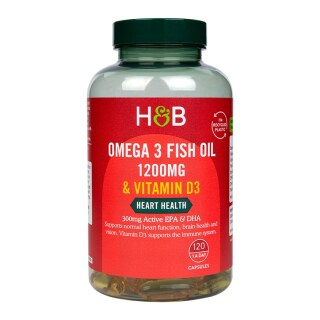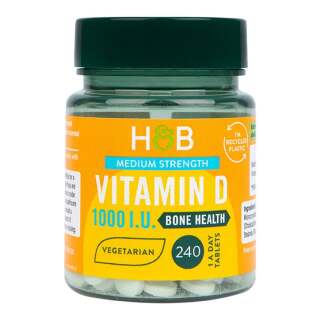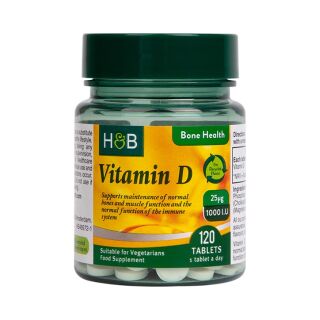You've probably heard of the famous vitamin D. But do we know what it is, the functions, where it's involved in and why it has gained so much popularity over the last years?
Let's discover it together!
What is vitamin D?
Vitamin D or the so called “the sunshine vitamin" belongs to the group of fat-soluble vitamins, which means that it requires the presence of fat in order to be absorbed and stored in adipose tissue and the liver (yes, it belongs to the vitamins stored in our body, such as A, E & K). Essentially, it is a complex of vitamins, vitamin D2, derived from plant sources - or ergocalciferol - and vitamin D3, derived from animal sources - or cholecalciferol. D2 & D3 are converted in the body to the active form of vitamin D, calcitriol2, which takes part in a number of reactions. 25(OH)D is the indicator of the amount of vitamin D stored in the body – which we can see at our blood tests. D3 is the most bioavailable (or most efficiently absorbed) form of vitamin D and is the most commonly found in vitamin D supplements7.
Vitamin D sources
The main source of vitamin D is sunlight, with the body meeting 80-90% of the daily recommended intake with 15-30 minutes of sun exposure2,7. In terms of diet, dietary sources are very few and these include…
- Fatty fish, such as sardines, sea bream, salmon, mackerel.
- Egg yolk
- Mushrooms
- Liver
- Vitamin D fortified foods, such as dairy products, pastries and fruit juices (not so common in Greece, as there is no corresponding legislation)2.
While the above dietary sources can provide up to 20% of the daily recommended intake of vitamin D7.
Functions
Because of the thousands of vitamin D receptors present in the tissues of the human body1, it appears to be one of the most important vitamins for our physical and mental health.
Musculoskeletal system
One of the main functions of vitamin D is its essential participation in the normal homeostasis and absorption of calcium in the bones, making it essential for bone growth1. Reasonably, we conclude that it is a key factor in bone reconstruction following any kind of fracture or injury3. In addition, vitamin D regulates the expression of more than 1000 different genes in our body, which are responsible for protein synthesis - all our body tissues are made up of millions of protein molecules linked together. This makes it essential for smooth and efficient protein synthesis1,7, especially for athletes, either amateur or professional. Indeed, vitamin D deficiency and insufficiency has been shown to be an inhibitor of muscle mass growth and has been associated with reduced muscle strength1.
Immune system
Numerous studies have highlighted the importance of sufficient vitamin D for a strong and effective immune system against infections. More specifically, a systematic review by Martineau and colleagues (keep in mind that systematic reviews and meta-analyses are the strongest scientific articles), following analysis of 25 randomized clinical trials, showed that vitamin D supplementation reduced the risk of acute upper respiratory tract infection4. Furthermore, inadequate vitamin D levels have been associated with an increase in the severity of Covid-19 symptoms, as well as increased hospitalization and increased likelihood of mortality from Covid-196.
Mental health
Vitamin D appears to play an active role in mental health5,7. Vitamin D deficiency has been associated with an increase in the severity of depressive symptoms through multiple brain mechanisms, in which inflammatory pathways appear to be involved5. Although we need more data to reach clear conclusions regarding vitamin D and its role in mental health, the data so far seem to contribute to the old Greek saying that «the sun can fix our mood...».
Vitamin D deficiency
Vitamin D deficiency has been a favorite topic of debate among researchers, as 1 billion people worldwide appear to be deficient in vitamin D, making it one of the most common nutritional deficiencies worldwide2. It is defined with levels < 25(OH)D<12ng/ml, while inadequacy is defined as 12 and 20ng/ml (30 - 50 nmol/L), with desirable levels being 25(OH)D > 20ng/ml (50 nmol/L)7. Although Greece is a country with more than 250 days of sunshine per year, the latest scientific data also look ominous for the Greek population. A recent study by Dimakopoulos et al. reported that 65% of Greeks are either deficient or insufficient in vitamin D2, data which are aligned with similar studies in other Mediterranean countries. But what is happening and the rates are so high? Many factors play a role, some of which are discussed below:
- The dark skin color. The presence of melanin in the skin is an inhibitor of vitamin D synthesis.
- The latitude of Greece.
- Working indoors.
- Environmental pollution.
- The limited time outdoors and the time we go out.
- The need to use sunscreen with an SPF > 30.
- The type of clothing.
- Limited dietary sources of vitamin D.
In addition, factors that have been associated with low vitamin D levels include excess body weight, age, sedentary lifestyle and smoking2,7.
For the reasons discussed above, vitamin D deficiency has become a global public health issue and supplementation by a doctor and/or dietician - nutritionist is becoming one of the most effective solutions for correcting low vitamin D levels. The dosage of the supplement depends on many factors, the most important being the index of stored vitamin D through blood testing, medical history and lifestyle factors. Although vitamin D is one of the vitamins stored in the body, adverse effects from overdosing appear to be extremely rare with dosages of up to 10000IU per day have been shown to be safe for the general population so far7.
Although, vitamin D supplementation is a health issue that concerns almost everyone, there are specific population groups, who are more prone to deficiency and these include:
- Elderly people
- People with a history of fractures and/or osteoporosis
- Postmenopausal women
- Smokers
- People with excess body weight
- Athletes
- People with malabsorption
Refers to people with Inflammatory Bowel Disease (IBD), chronic gastritis, bowel perforation and other clinical conditions of the gastrointestinal tract.
- People with kidney and liver disease
- People with dark skin
- People who are frequently ill
At last, we should not forget that spending 20-30 minutes a day in the sun - especially in the early morning or late afternoon - a balanced diet, the inclusion of physical activity and avoiding tobacco use are the foundations for maintaining and/or increasing vitamin D levels. This is a vitamin which is of paramount importance for our physical and mental health and regular monitoring of vitamin D levels enables us to work on any bad habits and to choose the right supplement for us with the helpful guidance of a health professional.
Scientific references
1Chiang, C. M., Ismaeel, A., Griffis, R. B., & Weems, S. (2017). Effects of vitamin D supplementation on muscle strength in athletes: a systematic review. The Journal of Strength & Conditioning Research, 31(2), 566-574.
2Dimakopoulos, I., Magriplis, E., Mitsopoulou, A. V., Karageorgou, D., Bakogianni, I., Micha, R., ... & Roma, E. (2019). Association of serum vitamin D status with dietary intake and sun exposure in adults. Clinical nutrition ESPEN, 34, 23-31.
3Gorter, E. A., Hamdy, N. A., Appelman-Dijkstra, N. M., & Schipper, I. B. (2014). The role of vitamin D in human fracture healing: a systematic review of the literature. Bone, 64, 288-297.
4Martineau, A. R., Jolliffe, D. A., Hooper, R. L., Greenberg, L., Aloia, J. F., Bergman, P., ... & Camargo, C. A. (2017). Vitamin D supplementation to prevent acute respiratory tract infections: systematic review and meta-analysis of individual participant data. bmj, 356.
5Menon, V., Kar, S. K., Suthar, N., & Nebhinani, N. (2020). Vitamin D and depression: a critical appraisal of the evidence and future directions. Indian journal of psychological medicine, 42(1), 11-21.
6Pereira, M., Dantas Damascena, A., Galvão Azevedo, L. M., de Almeida Oliveira, T., & da Mota Santana, J. (2022). Vitamin D deficiency aggravates COVID-19: systematic review and meta-analysis. Critical reviews in food science and nutrition, 62(5), 1308-1316.
7Pludowski, P., Holick, M. F., Grant, W. B., Konstantynowicz, J., Mascarenhas, M. R., Haq, A., ... & Wimalawansa, S. J. (2018). Vitamin D supplementation guidelines. The Journal of steroid biochemistry and molecular biology, 175, 125-135.








